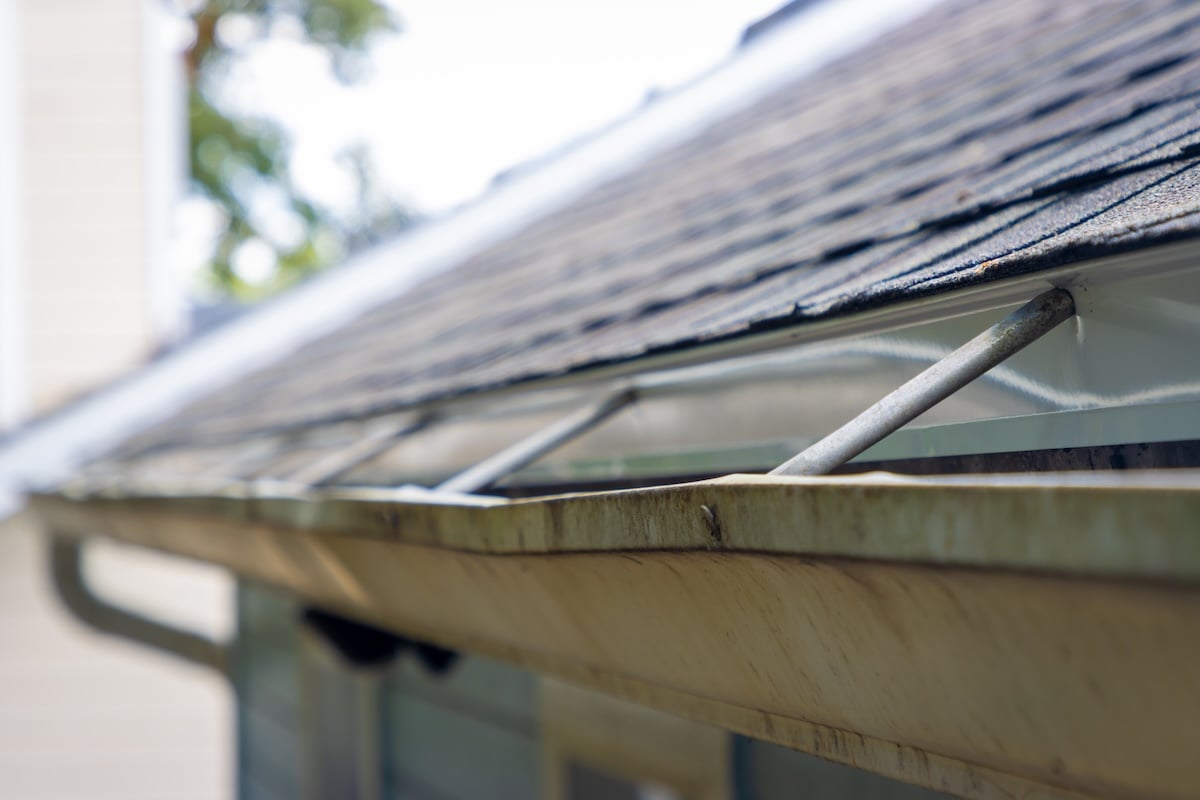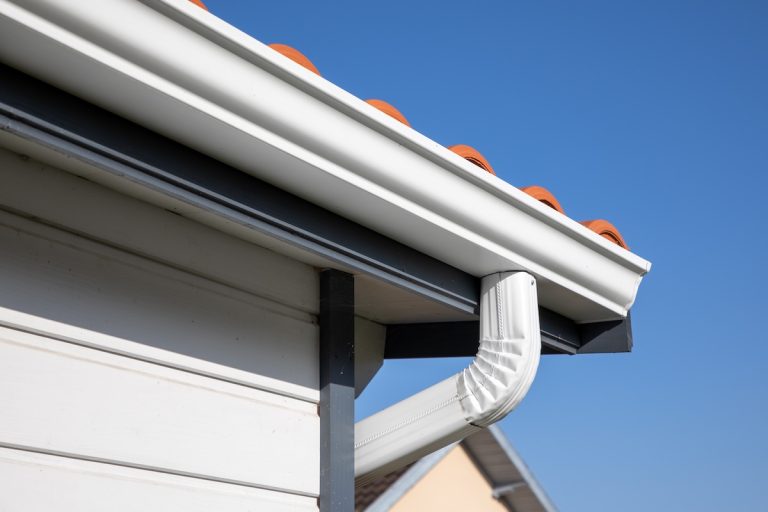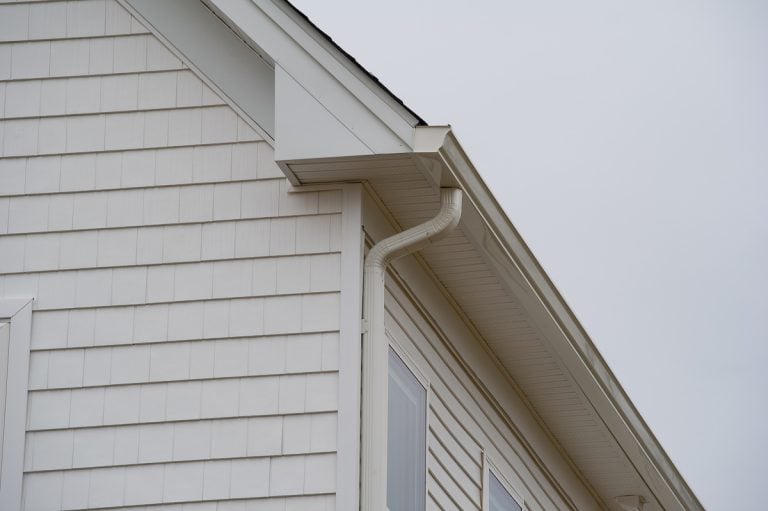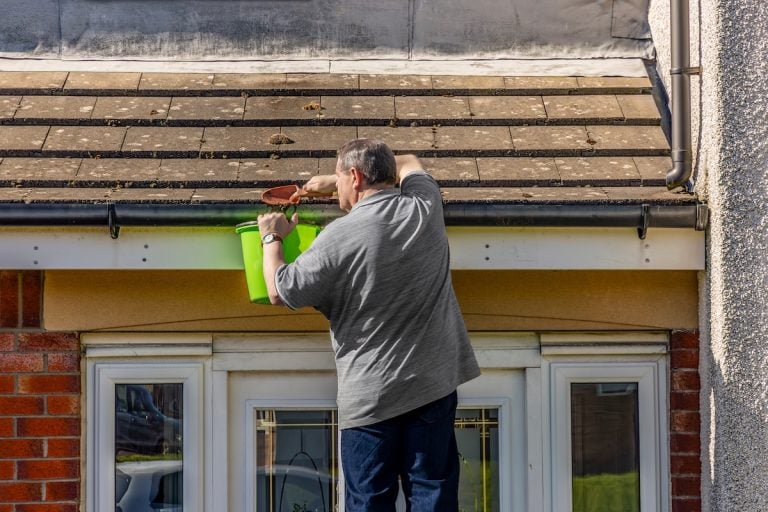Learning how to fix sagging gutters is a smart move for any homeowner looking to protect their roof, siding, and foundation. When gutters pull away from the house or begin to dip in the middle, they can no longer drain water properly, leading to overflow, leaks, and structural damage. Fortunately, many cases of sagging gutters can be fixed with the right tools and a bit of know-how.
In this guide, we’ll cover:
- What causes gutters to sag
- How to assess the damage
- A full step-by-step repair walkthrough
- Tools and materials you’ll need
- When it’s time to call in a professional
❗️ Why Sagging Gutters Are a Serious Problem
At first glance, sagging gutters may seem like a small cosmetic issue. But beneath the surface, they indicate water isn’t draining correctly—and that spells trouble. Improper drainage can damage fascia boards, ruin landscaping, and cause water to seep into your basement or crawlspace. Over time, the weight of trapped debris and water may even cause the gutters to detach completely.
⛈️ What Causes Gutters To Sag?
Understanding what’s behind the issue is the first step toward a lasting solution. Sagging usually results from a combination of wear, poor installation, and neglect.
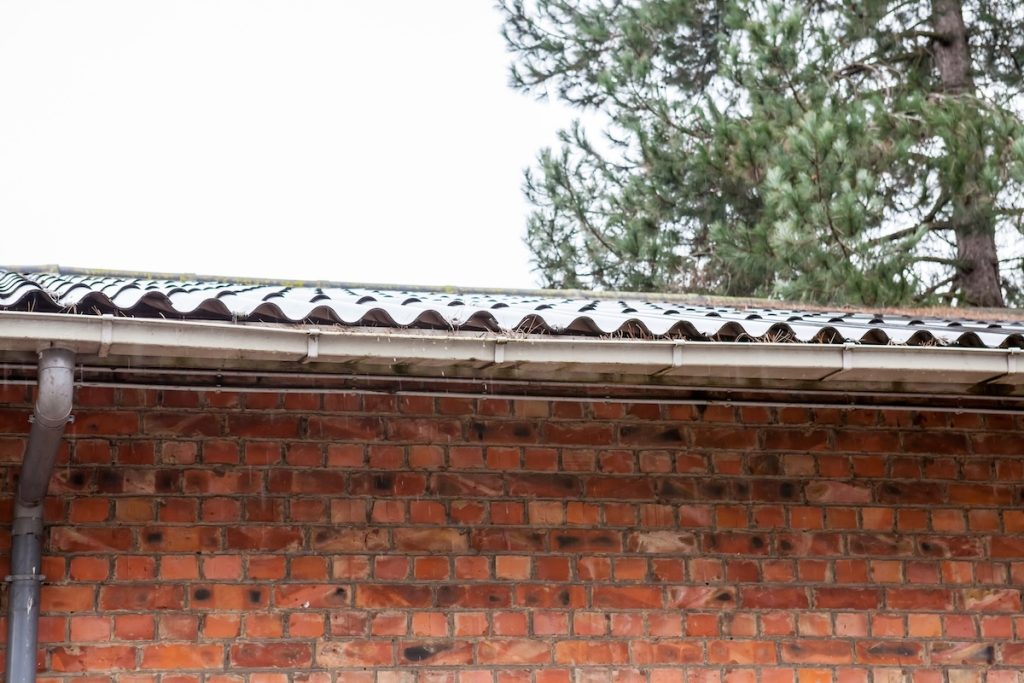
Loose or Spaced-Out Hangers
Gutter hangers are brackets that secure the gutter to your home. If they’re spaced too far apart or have worked loose over time, the gutters won’t have the support they need—especially when full of water and debris.
Heavy Debris or Standing Water
Gutters that haven’t been cleaned regularly tend to fill up with leaves, sticks, and even small plants. This extra weight puts constant stress on the gutter system, pulling it downward. In colder climates, ice can worsen the problem during winter.
Rotten Fascia Boards
Fascia boards are the horizontal wood planks where gutters are mounted. When these rot or deteriorate, they can no longer hold screws or brackets securely, leading to sagging or total detachment.
🛠️ Tools and Materials You’ll Need
Before starting your repair, gather the following:
- Cordless drill or screwdriver: For tightening or installing brackets
- Gutter hangers or brackets: Choose the type compatible with your system
- Lag screws or gutter screws: For stronger, more secure attachment
- Level and measuring tape: Ensures proper gutter slope
- Ladder and gloves: For safe access and handling debris
- Sealant (optional): For sealing minor leaks you may discover during repairs
✅ How To Fix Sagging Gutters: 5 Step Guide
Follow these steps to get your gutter system back in proper working order.
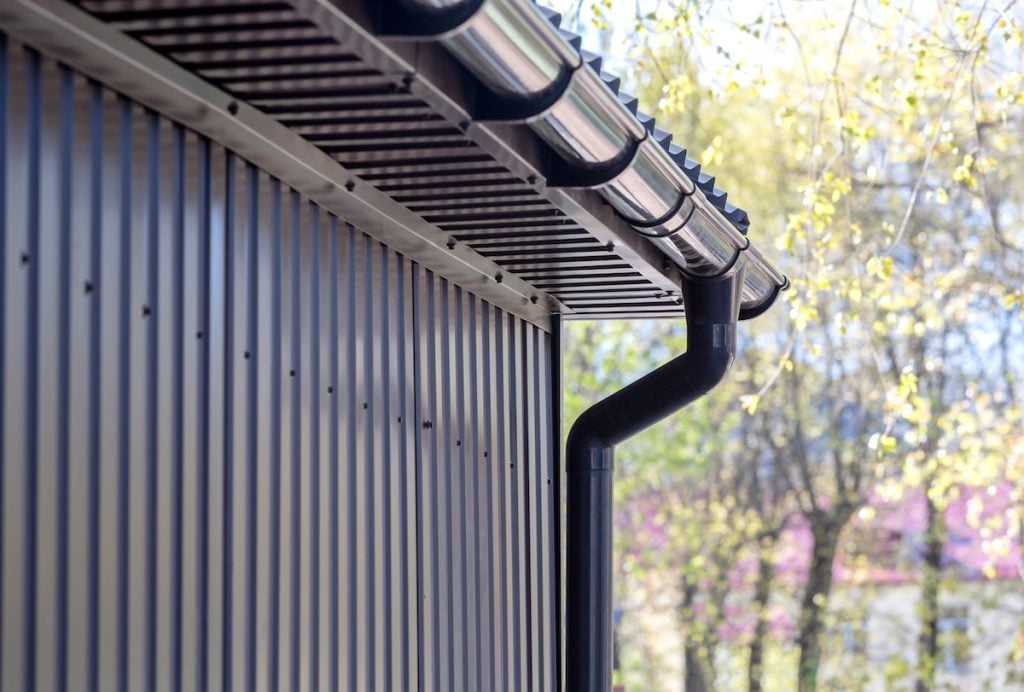
1: Inspect the Entire Gutter System
Start by walking around your home and noting any sections of gutter that appear to dip, pull away from the fascia, or leak. Pay attention to the areas near downspouts and corners, as these tend to sag first. Check from multiple angles, and if needed, climb a ladder to get a closer look.
2: Clean the Gutters Thoroughly
Use gloves and a scoop to remove any leaves, mud, or debris. Once clear, rinse the gutters with a garden hose to ensure water flows freely. This step is crucial—not just for safety, but to relieve unnecessary weight and help you evaluate whether sagging was caused by clogs or structural problems.
3: Check the Gutter Pitch
Gutters should slope slightly (about ¼ inch for every 10 feet) toward the downspouts. Use a level to measure the slope. If the pitch is off, water won’t drain properly—even if the gutter is secure. A sag in the middle of a run usually means the hangers need to be repositioned or additional brackets are needed.
4: Tighten or Replace Brackets
Use your drill or screwdriver to tighten any loose screws securing the gutter hangers to the fascia board. If the brackets are bent or broken, remove and replace them with new ones spaced about every 24 to 30 inches. Use longer gutter screws or lag bolts for extra holding power, especially if the wood is slightly deteriorated.
5: Repair Fascia If Needed
If the screws won’t hold because the wood is soft or rotting, the fascia board must be repaired or replaced before rehanging the gutter. This is a more involved project that may require removing sections of the gutter and cutting in new fascia boards. Don’t skip this step—attaching gutters to damaged wood is only a temporary fix.
⚠️ 5 Signs It’s Time To Repair (Or Replace) Your Gutters
- Visible sagging between brackets: Indicates stress from weight or loose attachments.
- Water spilling over the sides during rain: Suggests poor drainage caused by improper slope or clogs.
- Brackets pulling away from fascia: Often due to rotting wood or failing hardware.
- Cracks or splits in gutter seams: May require sealing or full replacement, especially if leaking.
- Soil erosion or mold near your foundation: A sign that water isn’t being directed away correctly.
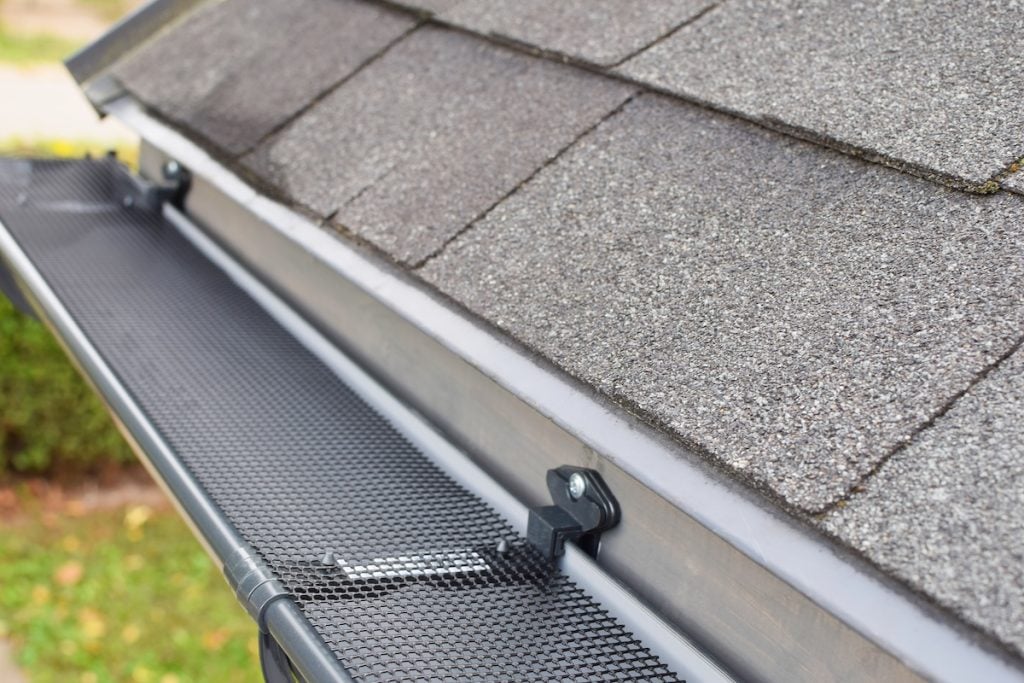
📞 When To Call a Professional
While many homeowners can repair small sections of sagging gutters, not every situation is DIY-friendly. If your home has a tall roofline, widespread rot, or complex gutter system (such as seamless or copper gutters), it’s safer and more efficient to hire a licensed contractor.
Professionals not only correct sagging but also assess the entire system—including drainage, downspouts, gutter guards, and fascia condition. This ensures your fix is complete and long-lasting, rather than just cosmetic.
💡 Tips To Prevent Future Sagging
Once your gutters are repaired, follow these preventative steps to keep them in great shape:
- Clean gutters twice a year: Prevents debris buildup and reduces stress on brackets
- Inspect after major storms: Wind and heavy rain can loosen attachments
- Install gutter guards: Keeps large debris out and reduces cleaning frequency
- Upgrade hangers or spacing: Use heavy-duty hangers and position them 2 feet apart or less
- Check fascia annually: Look for water stains or softness before it turns into rot
🤝 Trust Roof Medic To Keep Your Gutters Secure
Now that you know how to fix sagging gutters, you can take action before the issue worsens. A secure, properly sloped gutter system protects your entire home—from roofline to foundation. Whether you’re making minor adjustments or facing bigger repairs, acting early can save you time, money, and stress.
At Roof Medic, we do more than just roofing. Our experts repair, replace, and inspect gutter systems to keep your home safe and dry year-round. From gutter cleanings to fascia replacement, we deliver professional results you can trust.
Not sure if your sagging gutters need repair or full replacement? Contact Roof Medic today to schedule a professional inspection and get your home back in shape.
